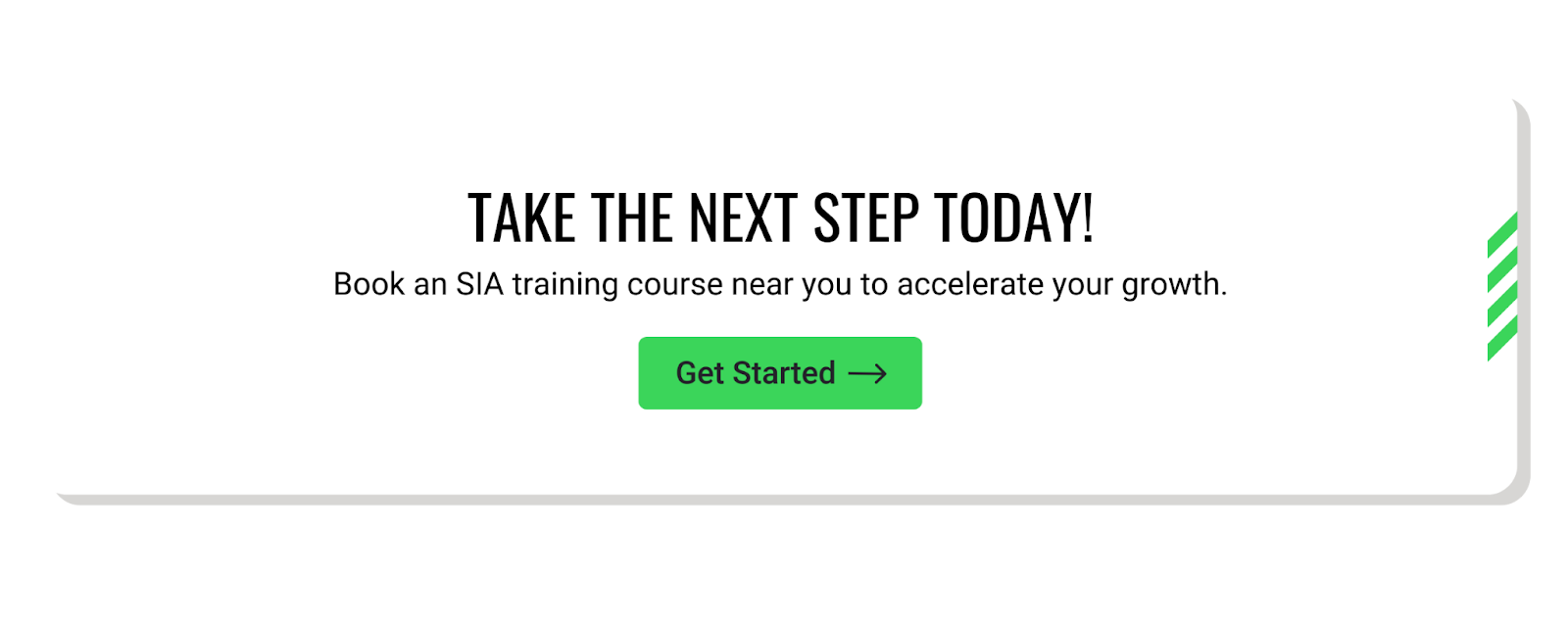“I got my SIA Door Supervisor badge, hoping it would open some doors, no pun intended. Either no replies or straight rejections.”
This frustrated message from a recent Reddit user captures a reality that many new SIA licence holders face: having the qualification doesn’t automatically translate to getting hired. If you’re experiencing the same thing during your SIA licence job search, you’re not alone, and more importantly, there are specific reasons why this happens and proven strategies to fix it.
The Harsh Reality Nobody Warns You About
The security industry employs over 451,000 licensed professionals across the UK, with the SIA processing nearly 15,000 applications every month. That’s significant competition, and simply having a licence puts you at the starting line, not the finish line.
Recent discussions across job forums reveal a pattern: people invest in SIA training expecting immediate employment, only to discover that the job market is more complex than often suggested. One London-based job seeker reported sending “so many applications” for part-time security work over several months with minimal response.
This disconnect between qualification and employment isn’t unique to security, but it’s particularly frustrating in an industry that’s often marketed as having high demand for workers.
Why London Is Particularly Challenging
If you’re looking for a security job in London, you’re facing additional challenges. The capital has the highest concentration of security professionals, meaning more competition for every position. London employers often prefer candidates with experience, even for entry-level positions, creating the classic catch-22: you need experience to get a job, but you need a job to get experience.
The London security market also has distinct sectors with different requirements. Corporate security, retail security, event security, and nightlife security all have different expectations, pay scales, and hiring practices. Applying broadly without understanding these distinctions often leads to job rejections.

What Employers Actually Want (Beyond Your Licence)
Your SIA licence proves you meet minimum legal requirements. That’s important, but it’s not what differentiates you from hundreds of other applicants. Here’s what employers are really looking for:
Reliability and Professionalism
Security work often involves unsocial hours, weekend shifts, and last-minute schedule changes. Your application materials, interview punctuality, and communication style all signal your professionalism level.
Relevant Experience or Transferable Skills
If you don’t have security experience, highlight transferable skills from other roles. Customer service experience is valuable for retail security. A military or police background is highly regarded for corporate roles. Even hospitality experience demonstrates your ability to handle difficult situations calmly.
Local Knowledge and Availability
Many security roles require intimate knowledge of local areas and genuine availability for the shifts employers need (often nights and weekends). If you’re only available during convenient hours, you’re limiting your options significantly.
The SIA Licence Job Search Strategy That Actually Works
Successful security job searches require a systematic approach that goes beyond online applications:
Start with Smaller, Local Companies
Large security firms receive more applications and can afford to be selective. Smaller, local companies often need reliable staff more urgently and may be willing to train promising candidates.
Network Within the Industry
Security is a relationship-driven industry where personal recommendations carry significant weight. Many positions are filled through word-of-mouth before being advertised publicly. According to recent industry research, over 70% of jobs are never publicly advertised.
Be Strategic About Timing
Security hiring follows predictable patterns. Retail security increases before Christmas and the summer holidays. Event security peaks during festival seasons. Corporate security hiring often aligns with financial quarters.
Demonstrate Commitment to Professional Development
Employers prefer candidates who view security as a career, not just a temporary job. Mention any additional training you’re pursuing or professional associations you’ve joined.
The Experience Problem (And How to Solve It)
The experience requirement creates a barrier for new licence holders, but there are legitimate ways to overcome it:
Volunteer for Events
Many festivals and community gatherings need volunteer security support. This provides real experience, networking opportunities, and references for future applications.
Consider Temporary and Agency Work
Security agencies often need staff for short-term assignments and may be more willing to hire inexperienced candidates. While work may be irregular initially, it provides experience and exposure to different security environments.
Start With Less Competitive Roles
Static security positions (monitoring empty buildings overnight) or retail security in smaller stores often have lower experience requirements.
Pursue Additional Qualifications
First aid certification or conflict resolution training can differentiate you from other candidates. Some employers will hire inexperienced candidates who show initiative in developing relevant skills.
Watch this helpful video about how to stand out in security and get hired faster for more practical tips.
Understanding Different Security Sectors
The security industry offers various paths, each with distinct requirements:
- Retail Security: This typically offers the most entry-level opportunities but requires strong customer service skills. Pay is often lower, but it provides valuable experience in dealing with the public.
- Corporate Security: This usually offers better pay and working conditions, but requires higher professional standards. These roles may involve access control, visitor management, and liaison with senior executives.
Door Supervision in nightlife venues offers good earning potential but involves significant personal risk and requires strong conflict resolution skills. Many venues prefer experienced staff due to the challenging nature of the work.
If you’re considering door supervisor roles, you’ll need a door supervisor licence, which requires specific training beyond basic security guard qualifications. Additionally, you can earn qualifications in conflict resolution and behavioural detection to stand out. Once you’ve figured out the career path you want to pursue, you can enjoy the many SIA badge benefits that come with it.

Your Next Steps
If your current SIA licence job search isn’t producing results, it’s time to reassess your approach. Review your application process for the common mistakes mentioned above, research the specific security sectors and roles within them that interest you most, and tailor your approach accordingly. Your SIA licence opened the door to the security industry. Now it’s time to develop the skills, experience, and professional network that will build a successful career.
Explore our range of e-learning courses and SIA training programmes to enhance your skills and demonstrate commitment to professional development.
Disclaimer: This blog is for informational purposes only. Please verify details independently before making decisions. Get Licensed is not liable for any actions or outcomes based on this content.












